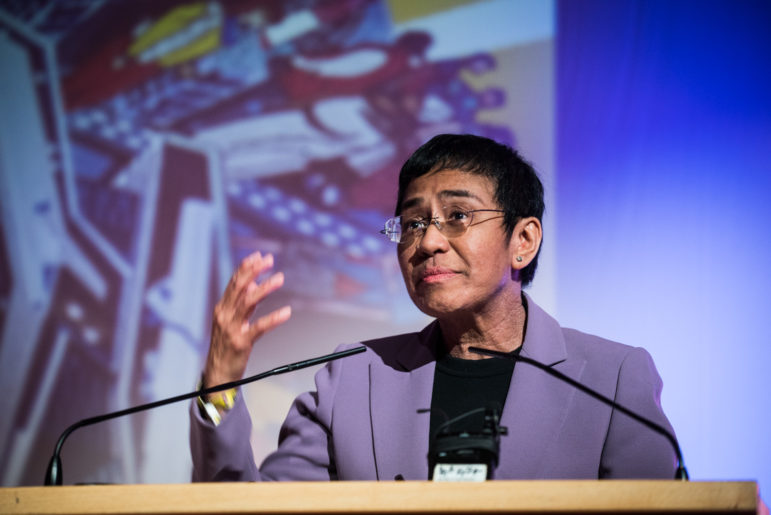
Data Journalism Teaching & Training
Test Your Data Visualization Skills With GIJN’s Latest Quiz
GIJN Turkish Editor and data journalism instructor Pinar Dag is back with another quiz to test your knowledge of data visualization.

GIJN Turkish Editor and data journalism instructor Pinar Dag is back with another quiz to test your knowledge of data visualization.

The rise of conflict imagery on social media has provided open source researchers valuable material to identify explosive ordnance.

For the SEJ’s Reporter’s Toolbox: datasets and sources useful for tracking the harmful impact of climate change-fueled algal blooms.

Investigative journalism in Ethiopia — Africa’s second most populous country — currently faces a series of severe challenges.

Plus a story on Venezuela’s controversial election, an analysis of Europe’s tourist overload, and an investigation into the sketchy nature of the Amazon carbon credit market.

Two Salvadoran investigative journalists discuss their ethnographic reporting on the impact of the drug trade on the La Moskitia Indigenous region of Central America.

Polish journalist Patrycja Maciejewicz on how SLAPPs have been used Poland, Serbia, Croatia, Slovenia, and Bosnia & Herzegovina — and how to combat them.

Veteran journalists share tips on how to monitor online chatter among white supremacists and other far right extremists — and how to stay safe while doing so.

GIJN spoke with the northern Gaza-based journalist about how he has managed to survive and work as a watchdog reporter under harrowing, life-threatening conditions.

A cross-border investigation into Russia’s use of drones in Ukraine includes how drones are assembled despite sanctions, and cooperation with Tehran to produce UAVs on Russian soil.

The 2025 Global Investigative Journalism Conference (GIJC25) will be held in Kuala Lumpur, Malaysia in the fourth quarter of next year, in partnership with co-host Malaysiakini.

Also highlighting a deadly hostage rescue operation in Gaza, the private jet travel carbon emissions of France’s elite, and a brief history of Taiwan and China’s relationship through maps.

Nobel Prize laureate and Rappler co-founder Maria Ressa on her site’s new Communities venture and making bold moves in countering Big Tech.

GIJN talked with reporters doing the difficult work of covering the Hamas attack on Israel and its aftermath, including preparations for the October 7 assault.

GIJN spoke to Jordy Meléndez of the Latam Network for Young Journalists about how his organization trains reporters to work on collaborative investigative projects.

A panel of journalists shared methods, tools, and security protocols with reporters from across the globe who want to track organized crime’s finances and operations.

The Mexican filmmaker Santiago Maza has a new documentary called “State of Silence,” which explores the perilous situation facing investigative journalists in his home country.

UK veteran investigative journalist Martin Tomkinson shared stories from London’s Fleet Street newspaper heyday and tips for up-and-coming investigative reporters.

As well as playing an outsize role in exposing state capture and toppling South Africa’s former president, this newsroom is a champion for investigative journalism in the region.

At IRE24, investigative reporter Jeremy Jojola shared his practical advice on how to use ChatGPT for contact searches and quick document analysis.

Data journalism is helping outlets across the region carry out innovative projects that reveal the stories hidden in large volumes of data.

Investigative podcasts from the region have successfully managed to mix traditional reporting with one of the continent’s oldest genres: narrative journalism.

When the award-winning Folha de São Paulo journalist did an investigation into election disinformation, she became a target herself.

As organized crime in the region metastasizes, investigative journalism is rising to the challenge, using innovative ways to cover ever-changing threats.

As one of the most respected journalists in Latin America, Carmen Aristegui has investigated political corruption and forced disappearances, never shying away from tough subjects.

CLIP was founded by three leading journalists who shared the conviction that to mirror the transnational challenges journalists face in Latin America, the stories had to be cross-border too.

We asked GIJN’s Latin America members what characteristics define investigative journalism in the region, and about their greatest challenges.

Small amounts of failure in the open source field are inevitable, and somewhat expected. But they will also help you become a better open source analyst and investigator.